Mapping the Terrain: Presenting Results of Year-long Research
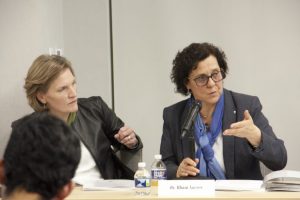
On November 19, 2019, IIIT research team presented the findings of its year-long Mapping the Terrain research study as part of Advancing Education in Muslim Societies (AEMS) initiative. The event was hosted by the School of Education International Training and Education Program (ITEP) Global Education Forum events at the American University (AU) campus. IIIT and ITEP have been collaborating to further the knowledge and research on evidence-based ways to reform education. The event was attended by faculty, researchers, nongovernmental organizations, and students from universities in the DC area.
Dr. Corbin Campbell, Associate Dean of Academic Affairs and Associate Professor, School of Education, welcomed the audience and thanked IIIT and ITEP, for this collaborative program. She introduced the panelists, Dr. Ilham Nasser, IIIT Senior Researcher of Curriculum and Pedagogy, AEMS; Dr. Cynthia Miller-Idriss, Professor of Education and Sociology, AU; and Dr. Elizabeth Worden, Associate Professor of ITEP, AU. Campbell followed by a brief overview of IIIT and its research agenda, the partnership between IIIT and ITEP, and the common values shared by both institutions such as the values of empathy, forgiveness, moral reasoning, and community mindedness that are constructs measured in the study.
Dr. Nasser expressed her appreciation for the AU and the team for supporting the initiative. She also thanked all the people who helped make this study come to life. She briefly described the conceptual framework of the study and explained that “AEMS is not only an initiative but is also a framework in which we are looking at meaning behind the research and a pathway to reform of education in Muslim societies and beyond. The focus of the study is to highlight what is working in these communities, not what isn’t”. In addition, Nasser explained that the research team used the human development approach and more specifically the Spiral Dynamic model because of its dynamic nature and focus on states of consciousness. The model was modified and a 9th stage was added to highlight the importance of tawhid (oneness of God) as a high state of being. She explained that, in initiating the empirical research, IIIT contributes, not only to the theoretical research, which IIIT has been conducting for years, but also to providing data that is grounded in Muslim societies.
Dr. Miller-Idriss commended the team for their remarkable achievement in getting the results for what was initially projected to be a pilot project and not a full-fledged research program. She spoke about the possible impacts of the study, such as the importance of “building up team capacity across the world and in these countries to generate research from within the communities.” Another achievement is getting the research into the academic arena in the US by presenting in different conferences such as the American Educational Research Association (AERA) and Comparative International Education Society (CIES), and founding an academic journal and book series with Indiana University Press.
After the presentations, the highly intellectual audience of scholars, students of higher education, and a delegation of education leaders from Pakistan and representatives from the Malaysian embassy and others sparked a discussion around the results of this study.
More pictures on Flickr
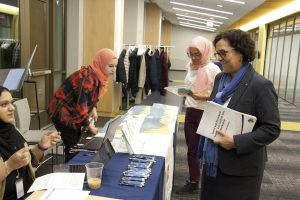
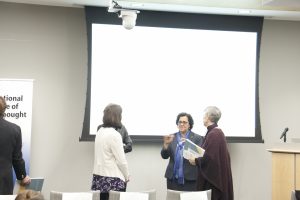
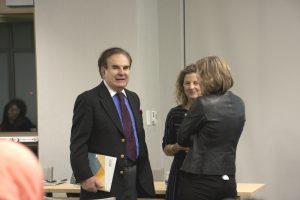
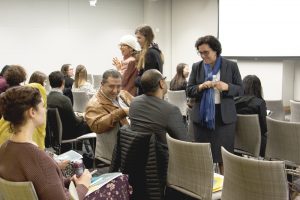
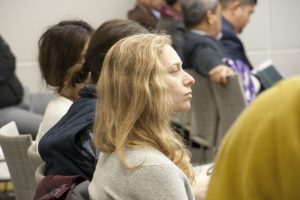
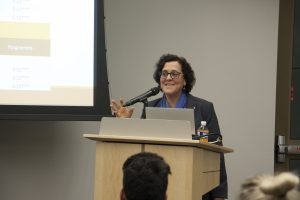
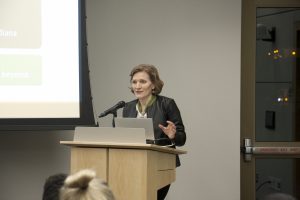
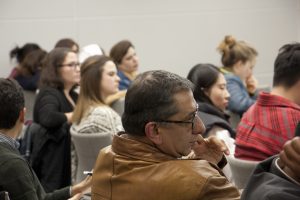
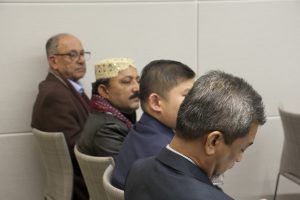
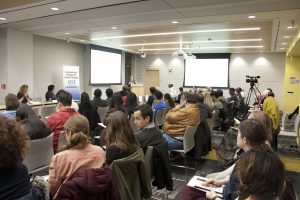
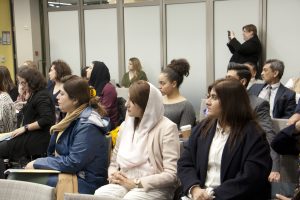
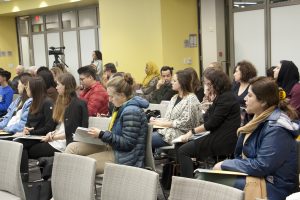


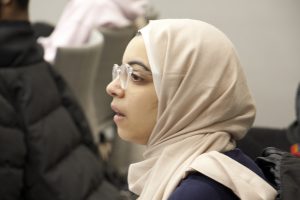



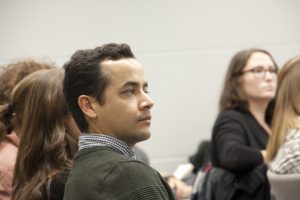
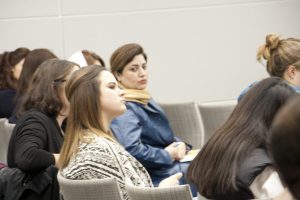

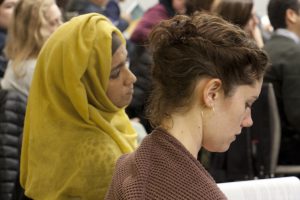
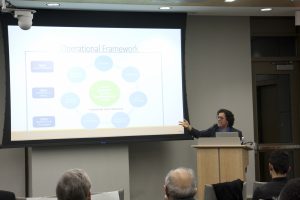
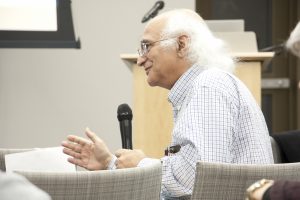
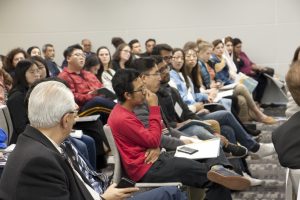
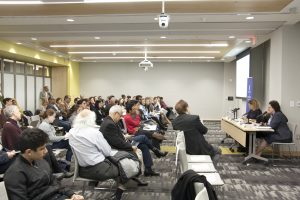
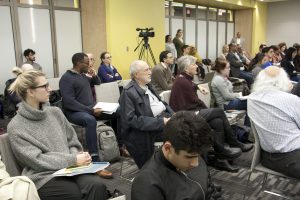
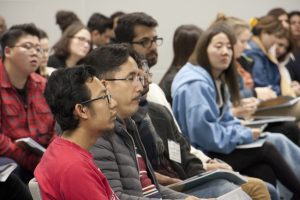
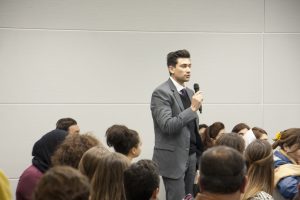
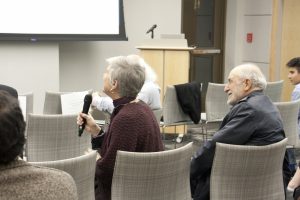
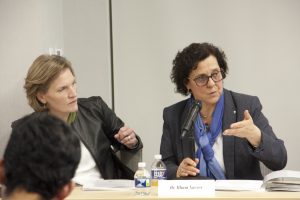

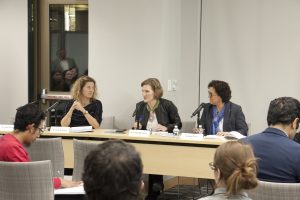
Recommended Posts
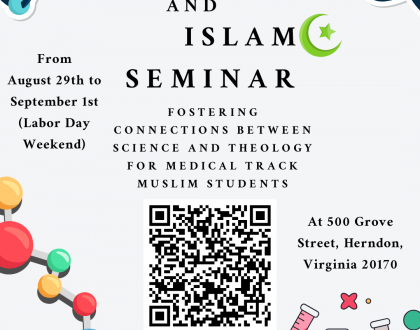
Exploring Bioscience & Islam Seminar Series
May 21, 2025
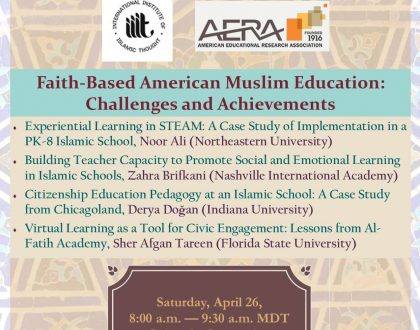
IIIT at AERA 2025 Annual Meeting
April 14, 2025
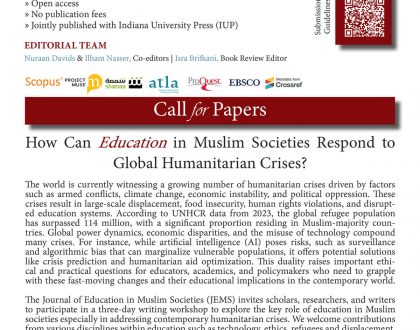
JEMS – Call for papers
April 11, 2025
